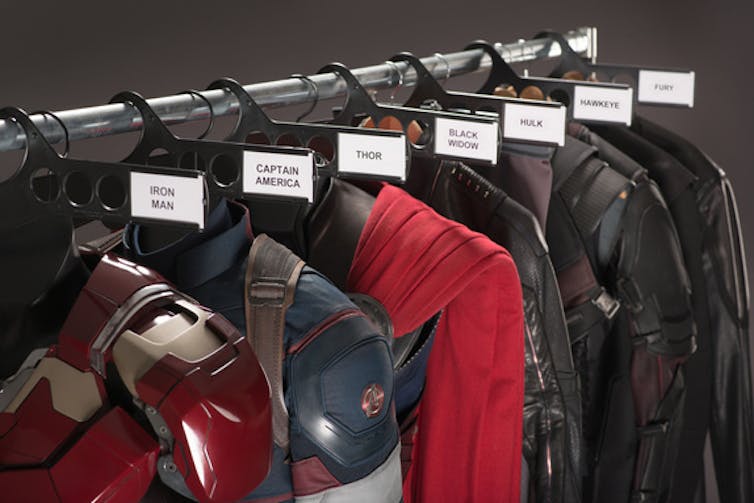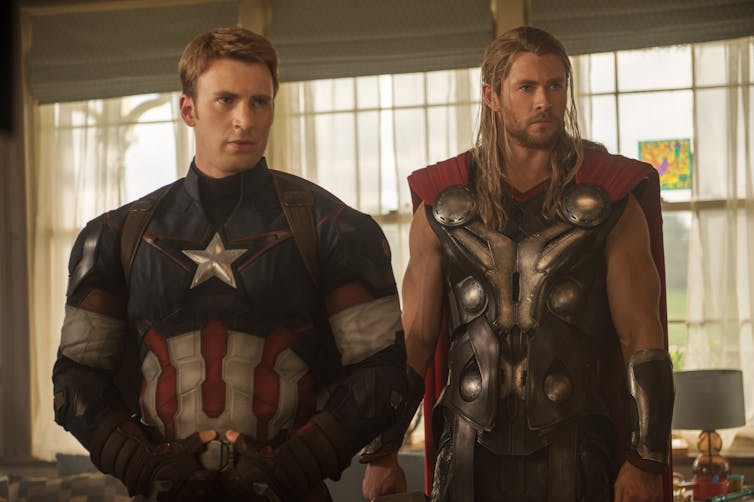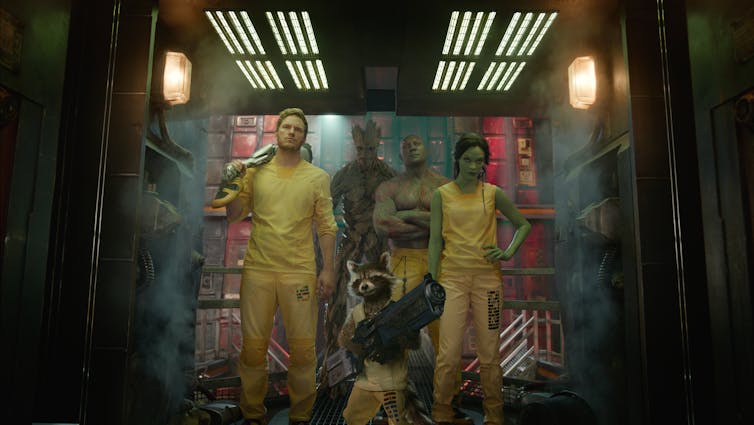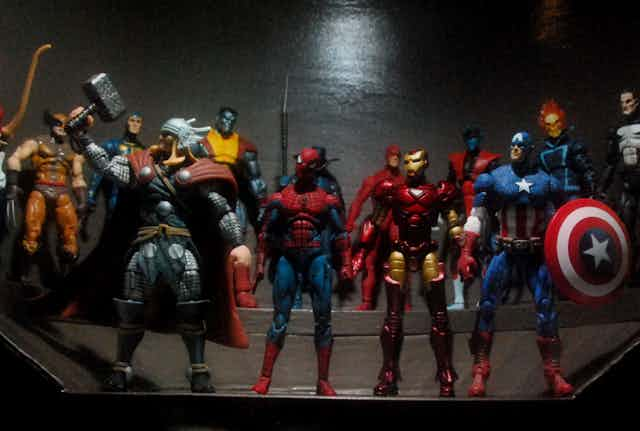In the fall of 2010, as The Walking Dead was about to debut on TV, I launched my Media Genres: Zombies course at the University of Baltimore and examined what that horror subgenre reflects about our culture. Much of the press coverage focused on the course’s very existence. Why waste the time and money? Shouldn’t you be teaching kids how to get a job?
Four years later, the University of Baltimore has announced my spring 2015 Media Genres: Media Marvels class, which focuses on the Marvel Cinematic Universe, which is itself based on Marvel Comics’ 75-year-old interconnected saga, and the same questions are popping up.
So here I am again to explain why teaching critical thinking about mass media is vitally important to guarantee our students are not just capable of working but of functioning as literate, informed citizens.

My courses are about using familiar pop culture constructs to teach students how to think critically, analyze the messages shared via entertainment, and discuss race, gender, class, ethics, and morality in a way that reaches them where they live.
While many classes use a dusty literary canon that offers less relevant connections for present-day students, my courses use zombies and superheroes – the common cultural currency we’re reading and viewing in the here and now – as a spur for thoughtful conversation. Academic texts don’t have to be old to be important and useful; the reverse is truer now than ever before.
We exist in a world where we are inundated by media messages. They can change how you think, who you vote for, how you make choices in a thousand indefinable ways. If you’re aware of these messages and understand how to decode them, you have the tools to make it through this media-saturated life with awareness and, eventually, wisdom. Education isn’t always about training you to get a job; it’s about preparing for a lifetime in a world filled with agendas and people motivated to make up your mind for you.

Captain America: The Winter Soldier, released earlier this year, is a good example of how well the Marvel movies lend themselves to productive analysis; it’s also a film Marvel and parent company Disney had no need to make. Given the good will generated by the previous films, and the built-in audience eager to see every new chapter, all they had to do was deliver a well-made, rousing adventure with our shield-slinging hero.
Instead, this ode to 70s conspiracy films – featuring that era’s most notable actor, Robert Redford, in a profound inversion of his usual role – upends much of the series’ structure, sets narrative obstacles for any successive films, and incorporates pointed political commentary on everything from NSA surveillance to drone strikes.
That’s just one movie; we’ll be looking at eleven of them and examining their comic book, cinematic, and literary predecessors as well as supplementary material from the likes of mythologist Joseph Campbell and neurologist Oliver Sacks.

None of this is really new. While my course is being called the “first of its kind” by specifically focusing on the Marvel Cinematic Universe, the academic exploration of comics and superheroes has been going on for decades. Every time it’s reported – usually with the same patronizing BAM POW ZAP headlines – it’s as though this never happened before.
“Now you can take a college course in comics!” Yes, and you could also take one 15 years ago when I first started teaching comic book literature over at the University of Maryland, Baltimore County. You could also encounter Marvel heroes in universities decades ago when Marvel editor and writer Stan Lee himself took to the college lecture circuit.
Perhaps another compelling argument for teaching critical thinking is that it might be a good idea to train the next generation to have a cultural memory that lasts more than five years.
While I knew certain news organizations would report the Marvel course with bemusement or derision, I was shocked to see some pop culture publications including io9.com dismissing and even insulting the notion.
Fans often feel ownership of something when it remains within their purview, but as these characters became global icons – the very reason we need to examine them – they passed out of the hands of comic book fans exclusively and now belong to everyone. I can only say that as equal parts educator and enthusiast myself, I approach the Marvel material with the same passion I had for it as a child when I read Stan Lee’s hyperbolic captions and dialogue as Spider-Man struggled to save the day once again.
Comics are excellent gateways to literacy; they can introduce children to the joy of reading as well as providing early lessons in heroism, morality, and ethics. Superheroes are there to save the day in fiction and reality. It’s time to carry that effort forward, and I’m very proud to be part of it. I teach media and critical thinking because I see it not just as a job but also as a responsibility. And as all Marvel fans know, with great power … you’re ahead of me, aren’t you? ’Nuff said. Excelsior!

